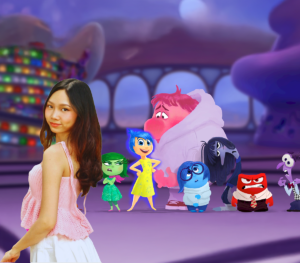Let’s be real. With artificial intelligence platforms like ChatGPT, Gemini, Copilot, Claude, or Perplexity, writing everything from essays to Instagram birthday messages, it’s getting harder to tell what’s human and what’s generated by the digital brain of a robot that never sleeps. If you’ve ever read something online and thought, “This sounds sus,” you’re probably onto something.
As AI-generated content becomes more popular while spurring discussions on authenticity, some content creators and regular netizens have become determined to help tell the difference. From blog posts to YouTube vloggers on AI-detection tools, creators are breaking down the subtle signs of machine-written text, whether it’s overly formal tone, robotic phrasing, or lack of personal experience.
But don’t worry, you don’t need to be a tech expert to sniff out AI writing. You just need to look for a few telltale signs. Here’s how to tell if a piece of text was written by AI and not your overly articulate blogger friend who suddenly “found their voice.”

⚠️ Em dashes in every other sentence, like it’s an addiction.
AI loves an em dash (—), maybe a little too much. It’s the bot’s favorite way to sound dramatic, thoughtful, and editorial. We humans? We use them, sure, but we also toss in ellipses… or forget punctuation entirely.
⚠️ Overly structured sentence pairs that sound rehearsed.
“Not only is it user-friendly, but it’s also highly efficient.” If every sentence sounds like a TED Talk rehearsal, that’s AI being symmetrical. Humans interrupt their train of thought, while AI keeps things too neat.
⚠️ Sentences packed with fancy words but saying the same things over and over.
Instead of repeating a word, AI swaps it for other synonyms: essential, vital, crucial, and fundamental. It’s like watching someone show off their word-of-the-day calendar.
⚠️ Big promises without personal insight, story, or emotion.
“This revolutionary tool will transform your productivity!” Cool. But how? AI sometimes sounds like a motivational poster, all hype with zero personal experience or emotion.
⚠️ Writing with zero personality; too clean, too neutral, too… safe.
Good writing has fingerprints such as opinions, humor, awkward phrasing, and vulnerability. AI-generated writing is usually emotionally beige. It doesn’t sweat, doubt itself, or get weird.
⚠️ Wishy-washy tone that avoids any real stance.
AI doesn’t like taking sides. You’ll see a lot of “some people may find…” or “in many cases…” Humans, on the other hand, rant, joke, overshare, and sometimes go off-topic… and yes, we’re lovable that way!
⚠️ SEO Keywords repeated unnaturally or stuffed into awkward spots.
If it feels like the author Googled “SEO hacks” and crammed every keyword into one paragraph, there’s a good chance it was AI. Especially if you read: “The best coffee for coffee lovers who love coffee.”
⚠️ Perfect syntax, robotic rhythm.
AI gets grammar right. Too perfectly right. The result? Paragraphs that technically check out but read like they were written by a grammar teacher who forgot how humans talk.
⚠️ Same old cookie-cutter intros and outros.
If a piece begins with “In today’s fast-paced world…” and ends with “In conclusion, it’s important to note…,” or social media captions saying “unleash,” “unlock,” “discover,”…congratulations! You might have entered AI Essay Generator 101.
⚠️ No anecdotes, no “me too” moments, no soul.
AI avoids imperfect human details. If you’re researching someone, it probably won’t mention when they flunked a job interview or got lost in a mall. You’ll get generic insight, not lived experience.
TL;DR
If a piece of writing sounds polished but oddly lifeless, you might be reading something written by AI. Though no shade, bots can write fast and clean, but they often lack the quirks and coffee-fueled charisma that make human writing more, well, human.
Quick tip: Look out for
✅ Em dash obsession
✅ Too-perfect balance
✅ Buzzwords with no bite
✅ No humor or hot takes
✅ The personality of a soggy toast
AI can be helpful with research, but it’s also important to cross-reference your text. Remember that great writing has soul. It shares, questions, and even laughs at itself. So, next time you read a perfectly packaged paragraph that feels oddly sterile, just ask, “Is this someone talking to me, or is this just a very polite robot?”
Some Helpful References:
https://www.technologyreview.com/2022/12/19/1065596/how-to-spot-ai-generated-text/




